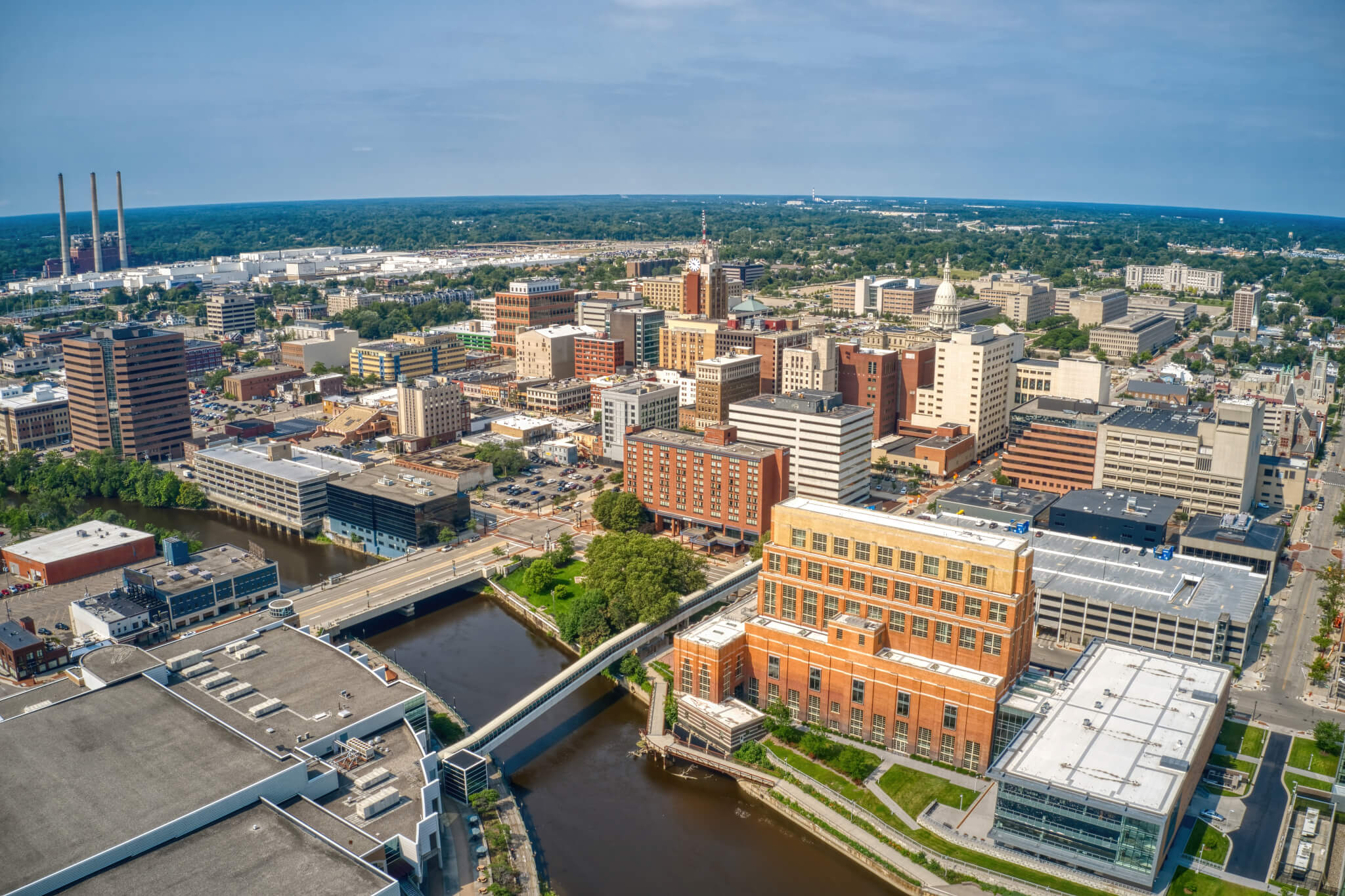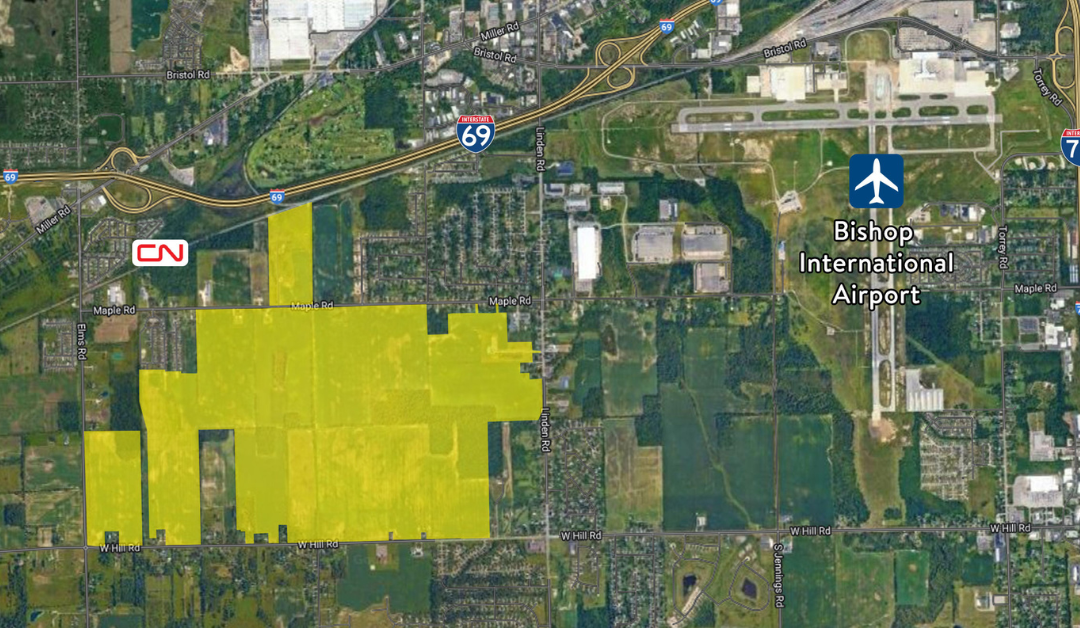
A state park in Flint. Clean water for Benton Harbor. A modern ski jump in the UP. Overnight, Michigan politicians agreed to game-changing legislation that will transform the state’s future.
Need to Know
- Lawmakers have agreed on how to use federal funding to transform Michigan’s water systems, parks, and roads.
- In a rare stroke of bipartisanship, Lansing politicians rushed an agreed-upon deal through the process.
- These one-time local-first projects are set to make an immediate impact on quality of life around the state.
LANSING, Mich.—Breaking news: Politicians agree, for once. Because of a new deal in Lansing, residents will get better water, Wi-Fi, parks, and roads all as the result of fiscal responsibility and federal funding. Michigan has designated billions of dollars to complete major wish-list projects it hadn’t been able to get to—until now.
Lansing’s top lawmakers signed off on a massive infrastructure package Wednesday night and wasted no time shepherding it through formality votes Thursday to send it to the governor’s desk. The legislation will overhaul local water systems throughout the state and put transformative funds toward parks, broadband, unemployment services, and, of course, roads and bridges.
Michiganders are sure to feel the impact of this deal more than your average policy, as the supplemental will deliver shiny new projects that plant roots in communities around the state—spanning from expanding Wi-Fi to creating a state park.
“By successfully working together, we’ve reached an agreement on historic funding to make Michigan an even better place to raise a family, live and work – and I look forward to seeing the results of these transformative investments,” said Senate Appropriations Committee Chair Jim Stamas in a joint statement with other leaders.
Such expediency in finalizing a major piece of legislation is rare, but once both sides reached an agreement, they seemed eager to push it through with Michiganders’ shared concerns at its core.
Flint, for example, will finally get the funding for its promised waterfront state park—the first state park in Genesee County, the only county without one. The city will also receive a new water tower and backup system.
Benton Harbor will secure remaining funds for replacing its lead service lines, which had leached dangerous amounts of chemicals into residents’ water at home.
The Upper Peninsula got the go-ahead for upgrading its ski jump, building upon the region’s efforts to market itself as an outdoor recreation hub for residents and tourists.
The Detroit and Grand Rapids areas will receive similar amounts for respective greenways to connect the cities to their surrounding communities, fostering more dedicated spaces for walking, running, and biking.
These are investments that local leaders have often championed, and state leaders have promised, but that previously fell to the bottom of the priority list.
“There are many noteworthy investments in this deal which will benefit the state for the long-term, including funding to replace lead service lines in Benton Harbor, expand high-speed internet and build housing in underserved rural and urban areas, protect drinking water for families, and improve state and local parks throughout the state,” state budget director Christopher Harkins said.
The size of the legislation is difficult to overstate. These projects, totaling $4.8 billion, account for the equivalent of one-fifteenth of this year’s state budget.
More than 80% of the overall spending comes from federal funds, with most as the result of COVID-19 relief and infrastructure laws passed under President Joe Biden.
Armed with a record state surplus and a stockpile of federal funds, Gov. Gretchen Whitmer urged lawmakers when releasing her budget for next year to make significant one-time investments in infrastructure, which would bear fruits for generations to come without committing future funds.
The supplemental package, though different from a state budget, does just that, both sides say.
Not one dollar from the effort is committed to future spending, according to Thomas Albert, a Republican who chairs the Michigan House Appropriations Committee. Some projects will naturally require upkeep in years ahead, but the state hasn’t promised funding from future budgets in this package.
“We have a responsibility to use these resources in a way that will benefit our children and grandchildren for the rest of their lives,” said Albert.
More than in any other area, the supplemental prioritizes clean and safe water in communities. Communities throughout the state—not just Benton Harbor—will receive funds to replace pipes that are at risk of failing or enhance water treatment to remove chemicals. Schools will benefit from “healthy hydration” programs.
Dams in two towns will be repaired, and septic systems will also be upgraded.
The Michigan High-Speed Internet Office will be funded after sitting empty for months. The office is critical, advocates say, for delivering Wi-Fi to the more than 10% of Michiganders stuck without it.
Affordable housing will also get a kick in the pants, with money to support communities throughout the state.
Think of it as spring cleaning. As opposed to the routine piecemeal maintenance that government typically performs, this new deal does a lot of everything all at once, sweeping away hurdles to do a deep clean—or modernization—of the state.
“It’s great to see the Building Michigan Together Plan have so many programs that will make our state more healthy and successful, from meaningful investments in water infrastructure, homeowner assistance to prevent unjust foreclosures, and broadband expansion alongside a budget and staff for the Michigan High-Speed Internet Office,” Sam Inglot, deputy director of Progress Michigan, said in a statement. “Michigan families will get much needed relief and support as a result of this budget, and we thank Gov. Whitmer for getting it done.”
Now, Whitmer just has to sign off on the bill. She negotiated the final package and has said she will sign it once it lands on her desk.
Work on projects is expected to begin right away.
“We are so proud to announce that we have reached a deal on a bipartisan infrastructure supplemental to invest in our shared priorities including drinking water, high-speed internet, housing, and parks,” Whitmer said. “These are tough times for families, small businesses, and communities, and this bipartisan supplemental will help grow our economy, create jobs, and invest in every region of our state.”
Politics

Michigan lawmakers look to break (another) state funding record for public schools
Democratic lawmakers are hashing out plans to bring state funding for Michigan’s public schools to another new, all-time high—and ensure teachers...

Mundy Twp. project gets state funding in effort to boost local manufacturing
More than $9 million awarded to a planned development project in Genesee County could provide a big boost to the local economy and help create...

It’s official: Your boss has to give you time off to recover from childbirth or get an abortion
Originally published by The 19th In what could be a groundbreaking shift in American workplaces, most employees across the country will now have...
Local News

More Michigan teens could soon take driver’s ed in their own schools
Privatization of driver’s education means that only 38 Michigan high schools offer affordable in-school driving classes for students. New grants...

That one time in Michigan: When we became the Wolverine State
How did Michigan become tied to an animal that's practically nonexistent there? Among the many nicknames that the state of Michigan has, arguably...





